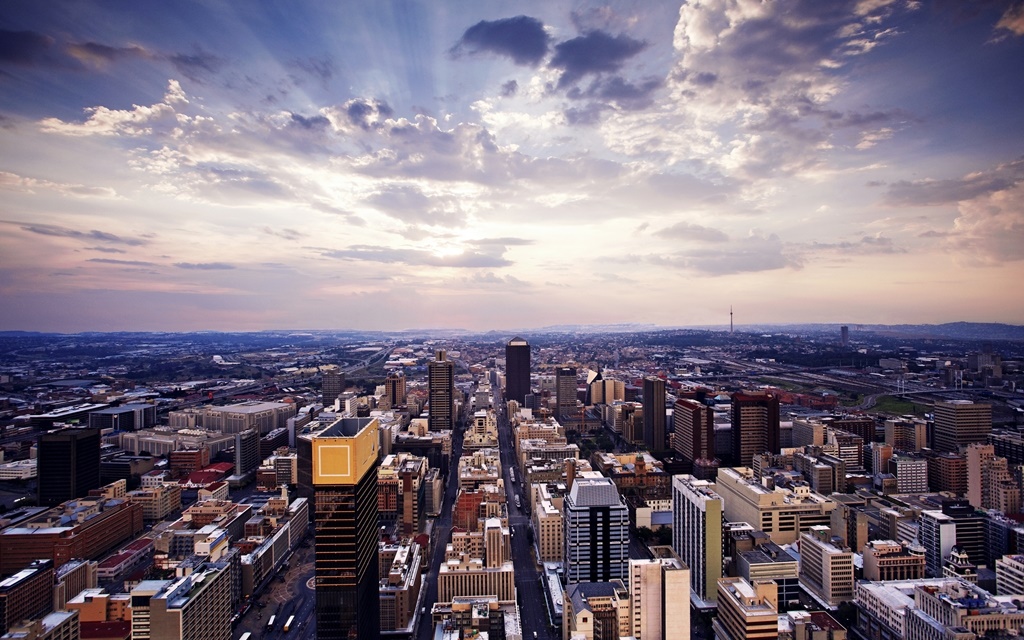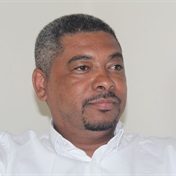
"The right to the city" is a right to change ourselves by changing the city more after our heart's desire. Oscar van Heerden writes that we are failing in this regard.
"The right to the city" is a treatise by David Harvey who followed on from the writings of Henri Lefebvre in the 1960s.
Basically, just like we fought very strongly for other rights such as human rights, private property rights, labour rights, women's rights, gay and minority rights, the list goes on, so too we must fight for our right to the city.
In the treatise, Harvey asks what the right to the city might mean. The city, as urban sociologist Robert Park once wrote, is "man's most consistent and on the whole, his most successful attempt to remake the world he lives in more after his heart's desire. But, if the city is the world which man created, it is the world in which he is henceforth condemned to live. Thus, indirectly, and without any clear sense of the nature of this task, in making the city, man has remade himself."
The right to change ourselves
The right to the city is, therefore, far more than a right of individual access to the resources that the city embodies: it is a right to change ourselves by changing the city more after our heart's desire.
The freedom to make and remake ourselves and our cities is, Harvey argues, one of the most precious yet most neglected of our human rights.
If indeed this is what we should aspire to, it is safe to suggest that we seem to be failing in this regard.
We thought as citizens that if we change the political leadership of our cities, surely then we will see the necessary change so dearly needed, but alas, we soon found out through coalitions that this mechanism does not always yield the requisite results. We only have to look at our metros now.
Both Tshwane and Johannesburg are literally falling apart. So much for a city after our own hearts. Inner-city decay in Cape Town is visibly disturbing while criminal cartels take over the inner city of eThekwini.
We see gas and methane explosions rocking the infrastructure in the City of Johannesburg, and in this day and age, we observe fellow citizens dying of cholera from the water supply of the City of Tshwane.
It seems there are political failures from the leadership in our cities, with Johannesburg gearing up for its ninth executive mayor in seven years. We see this trend in other cities too.
Then, of course, there is also the apartheid spatial morphology that haunts us to this day.
The wealthy live close to the city CBD while the poor are on the periphery and the margins having to use large sums of their meagre income to commute to work and back.
In Cape Town, Green Point, Sea Point and Camps Bay, among others, are close to the CBD, while the Cape Flats, including Mitchells Plain and Khayelitsha, are on the margins.
READ | Pieter du Toit: The Bree Street blast and the end of Johannesburg
In Johannesburg, it’s the parks suburbs, Houghton and Westcliff, that are close to the CBD while Soweto, Westbury, and the West Rand are on the margins.
In Gqeberha, Summerstrand is close, and the Northern Areas are on the margins.
In Tshwane, Waterkloof, Brooklyn and Hatfield are close to the CBD while Mamelodi, Soshanguve and others are on the margins.
Finally, eThekwini also exemplifies apartheid spatial morphology with Umhlanga Rocks, Morningside, Westville and Botha’s Hill close to the CBD while the poorer communities are on the margins.
In Johannesburg, this apartheid spatial morphology goes a step further where people, money and institutions don’t find themselves in one place. The JSE is in Sandton, the majority of workers live in Soweto, and many institutions are still in the inner city.
So, the right of the city ideal falls apart right here where apartheid epitomises not having the right of the city for the many.
On the one hand, we are facing a philosophical dilemma of not getting it right to provide the right of the city to all our citizens and on the other hand our cities are quite literally beginning to fall apart.
Serious work needed
Now, the question we must pose is if our chosen leaders, which we voted for, cannot deliver and enshrine our right to the city then what must be done?
The recent commemoration of the 40th anniversary of the United Democratic Front (UDF) by some progressives and its concomitant call for active citizenry for change and accountability is a welcomed start but it's not the solution; it's only a part of it.
The Auditor-General's report on the state of municipalities tells a story of serious work that needs to be done. Root causes of problems underlying critical failures are: inadequate skills and capacity, governance failures, accountability and consequence management failures, to mention a few.
The AG does not lament corruption because that is not the mandate, but we all know this too contributes significantly to service delivery failures at local government level.
The budget for local government stands at 48% for metropolitan municipalities, which is a staggering R262.92 billion. There is a further 20% for intermediate cities (R105.39 billion). Only 7% goes to district municipalities (R35.60 billion).
Local municipalities stand at a budget of R83.21 billion and finally, municipal entities receive R52.01 billion.
This is a very large allocation of the overall budget of government, understandably so, but are we getting it right? Does all this money and human resources provide us as citizens the right to the city?
We are going to the polls next year and though we will not be voting for local governments in the 2024 general elections, we must be guided by a set of questions, as Harvey reminds us, "If Park is correct, the question of what kind of city we want cannot be divorced from the question of what kind of people we want to be, what kind of social relations we seek, what relations to nature we cherish, what style of daily life we desire, what kind of technologies we deem appropriate, and what aesthetic values we hold."
With coalition governments failing to provide the requisite leadership and mismanaging our cities and resources, what kind of active citizenry must we evolve to become? Redirecting our taxes into private accounts and thinking that this mechanism will work for the majority of our people is folly. What we need is better government and innovative systems to solve our challenges. This way, we will finally get what we all deserve: our right to the city.
- Dr Oscar van Heerden is a senior research fellow for African Diplomacy and Leadership at the University of Johannesburg.
*Want to respond to the columnist? Send your letter or article to opinions@news24.com with your name and town or province. You are welcome to also send a profile picture. We encourage a diversity of voices and views in our readers' submissions and reserve the right not to publish any and all submissions received.
Disclaimer: News24 encourages freedom of speech and the expression of diverse views. The views of columnists published on News24 are therefore their own and do not necessarily represent the views of News24.




 Publications
Publications
 Partners
Partners























